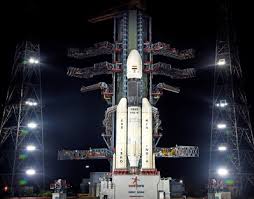India's Growing Presence in Space Exploration.
India has made significant strides in space exploration in recent years, positioning itself as a major player in the global space race. The country's space program has come a long way since its inception in the 1960s, with notable achievements including the successful launch of Chandrayaan-1, India's first lunar mission, and the Mars Orbiter Mission, which made India the first country in the world to successfully reach Mars on its first attempt. With ambitious plans for future missions and collaborations with international space agencies, India's growing presence in space exploration is poised to make a significant impact in the years to come.
India's space program, which is managed by the Indian Space Research Organisation (ISRO), was founded in 1969 with the launch of the first indigenous satellite, Aryabhata. Since then, the ISRO has launched over 100 satellites into space, including communication, navigation, and Earth observation satellites. One of the key factors that has contributed to the success of the Indian space program is its focus on affordability and self-reliance, with many of its missions being executed at a fraction of the cost of comparable missions undertaken by other countries.
One of the most notable achievements of India's space program was the Chandrayaan-1 mission, which was launched in 2008 with the objective of studying the Moon's surface and its mineral composition. The mission was a major success, with the detection of water molecules on the Moon's surface being one of its most significant discoveries. This was followed by the Mars Orbiter Mission in 2014, which made India the first country in the world to successfully reach Mars on its first attempt. The mission, which was completed at a cost of just $74 million, was widely hailed as a major achievement for India's space program.
India's space program is not just limited to Earth and its neighboring planets, however. The country also has ambitious plans for exploring the outer reaches of the solar system and beyond. One of its most notable upcoming missions is the Aditya-L1 mission, which is set to launch in 2022 and will study the Sun's corona and its impact on space weather. The ISRO is also planning a mission to Venus in the near future, with the aim of studying the planet's atmosphere and surface.
In addition to its own missions, India has also been actively collaborating with other space agencies around the world. In 2020, the ISRO signed an agreement with the National Aeronautics and Space Administration (NASA) to jointly develop a Synthetic Aperture Radar (SAR) satellite for Earth observation. The ISRO has also collaborated with the European Space Agency (ESA) on various projects, including the study of Mars and the development of a new satellite for Earth observation.
India's growing presence in space exploration has not only brought scientific and technological advancements, but has also created a number of economic opportunities. The country's space industry is estimated to be worth around $7 billion, with companies like the Indian Space Research Organisation (ISRO), Antrix Corporation, and Bharat Electronics Limited being key players in the industry. The sector has also created jobs for thousands of skilled professionals, from scientists and engineers to technicians and support staff.
In conclusion, India's growing presence in space exploration is a testament to the country's technological prowess and its determination to push the boundaries of scientific exploration. With ambitious plans for future missions and collaborations with international space agencies, India's space program is poised to make a significant impact in the years to come. As the country continues to invest in its space industry, it is likely that we will see even more impressive achievements in the field of space exploration in the future.





0 Comments:
Post a Comment
Subscribe to Post Comments [Atom]
<< Home